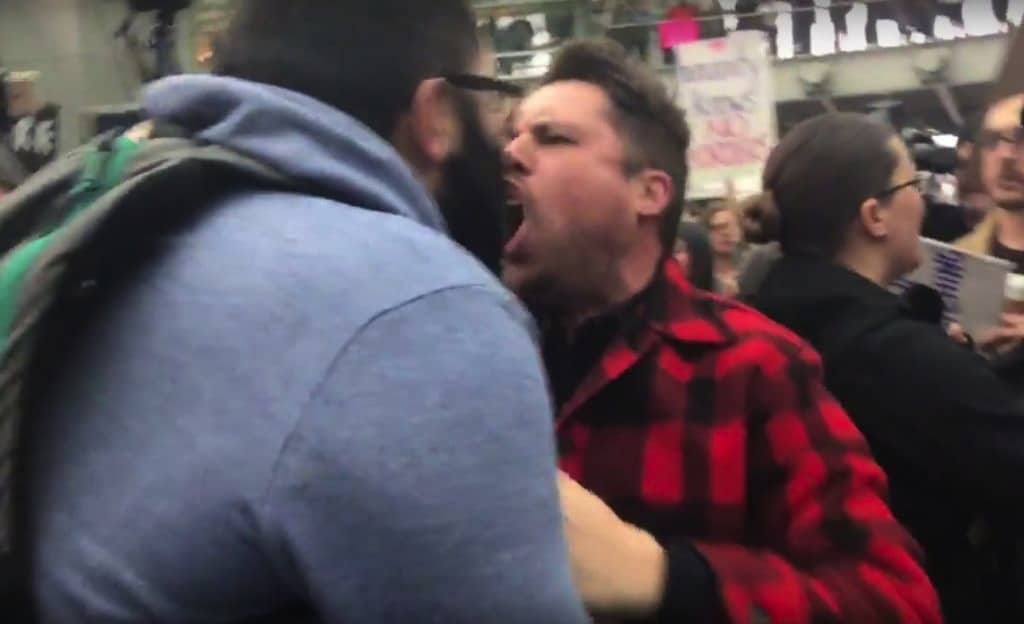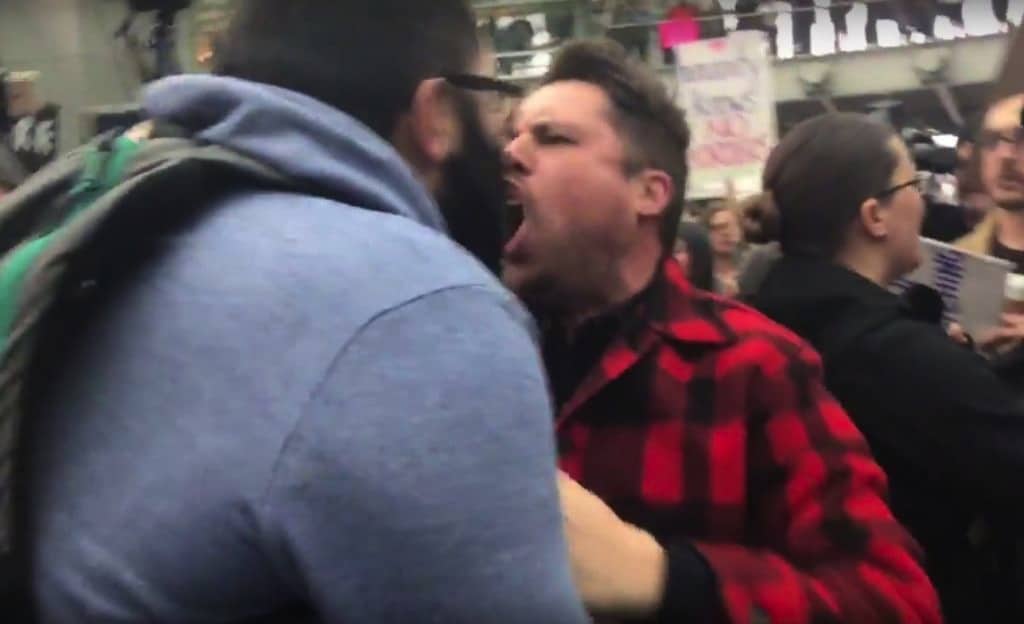
My hometown of Charlottesville, Va., has become the latest poster child in a heated war of words—and actions—over racism, “sanitizing history,” extremism (both right and left), political correctness, hate speech, partisan politics, and a growing fear that violent words will end in violent actions.
In Charlottesville, as in so many parts of the country right now, the conflict is over how to reconcile the nation’s checkered past, particularly as it relates to slavery, with the present need to sanitize the environment of anything—words and images—that might cause offense, especially if it’s a Confederate flag or monument.
In Charlottesville, that fear of offense prompted the City Council to get rid of a statue of Confederate General Robert E. Lee that has graced one of its public parks for 82 years. In doing so, they have attracted the unwanted attention of the Ku Klux Klan.
With more than 1,000 Confederate monuments in 31 states (in public parks, courthouse squares and state capitols), not to mention Confederate battle flags on display in military cemeteries, and countless more buildings and parks named after historic figures who were slaveholders, this isn’t an issue that is going away anytime soon, no matter how much we ignore it, shout over it, criminalize it, legislate it, adjudicate or police it.
The temperature is rising all across the nation, and not just over this Confederate issue.
The “winter of our discontent” has given way to an overheated, sweltering summer in which shouting matches are skating dangerously close to becoming physical altercations.
As journalist Dahlia Lithwick writes for Slate, “These days, people who used to feel free to shout and threaten are emboldened to punch, body-slam, and stab. It is a short hop, we are learning, from ‘words can never hurt us’ to actual sticks and stones and the attendant breaking of bones. That is what has become of free speech in this country.”
Here’s the thing: if Americans don’t learn how to get along—at the very least, agreeing to disagree and respecting each other’s right to subscribe to beliefs and opinions that may be offensive, hateful, intolerant or merely different—then we’re going to soon find that we have no rights whatsoever (to speak, assemble, agree, disagree, protest, opt in, opt out, or forge our own paths as individuals).
The government will lock down the nation at the slightest provocation.
It is ready, willing and able to impose martial law within 24 hours.
Indeed, the government has been anticipating and preparing for civil unrest for years now, as evidenced by the build-up of guns and tanks and militarized police and military training drills and threat assessments and extremism reports andsurveillance systems and private prisons.
Connect the dots, people.
The government doesn’t care about who you voted for in the presidential election or whether you think the Civil War was fought over states’ rights versus slavery. It doesn’t care about your race or gender or religion or sexual orientation.
When the police state cracks down, it will not discriminate.
We’ll all be muzzled together.
We’ll all be jailed together.
We’ll all be viewed as a collective enemy to be catalogued, conquered and caged.
Thus, the last thing we need to do is play into the government’s hands by turning on one another, turning in one another, and giving the government’s standing army an excuse to take over.
The police state could not ask for a better citizenry than one that carries out its own censorship, spying and policing.
This is how you turn a nation of free people into extensions of the omniscient, omnipotent, omnipresent police state, and in the process turn a citizenry against each other. It’s a brilliant ploy, with the added bonus that while the citizenry remains focused on and distrustful of each other, they’re incapable of presenting a united front against the threats posed by the government and its cabal of Constitution-destroying agencies and corporate partners.
So how do we stop this train from barreling down the tracks past the police state and straight into martial law?
Let’s start with a little more patience, a lot more tolerance and a civics lesson on the First Amendment. This will mean opening the door to more speech not less, even if that speech is offensive to some or “dangerous” in the eyes of the government.
As I make clear in my book Battlefield America: The War on the American People, the U.S. government has become particularly intolerant of speech that challenges the government’s power, reveals the government’s corruption, exposes the government’s lies, and encourages the citizenry to push back against the government’s many injustices.
The powers-that-be understand that if the government can control speech, it controls thought and, in turn, it can control the minds of the citizenry. In fact, some of this past century’s greatest dystopian authors warned of this very danger.
In Ray Bradbury’s Fahrenheit 451, reading is banned and books are burned in order to suppress dissenting ideas, while televised entertainment is used to anesthetize the populace and render them easily pacified, distracted and controlled.
In Aldous Huxley’s Brave New World, serious literature, scientific thinking and experimentation are banned as subversive, while critical thinking is discouraged through the use of conditioning, social taboos and inferior education. Likewise, expressions of individuality, independence and morality are viewed as vulgar and abnormal.
In George Orwell’s 1984, Big Brother does away with all undesirable and unnecessary words and meanings, even going so far as to routinely rewrite history and punish “thoughtcrimes.”
And in almost every episode of Twilight Zone, Rod Serling urged viewers to unlock their minds and free themselves of prejudice, hate, violence and fear. “We’re developing a new citizenry,” Serling declared. “One that will be very selective about cereals and automobiles, but won’t be able to think.”
It’s time to start thinking for ourselves again.
It’s time to start talking to each other. It’s time to start listening more and shouting less.
Most of all, it’s time to start acting like people who will choose dangerous freedom over peaceful slavery.
Reprinted with permission from the Rutherford Institute.

